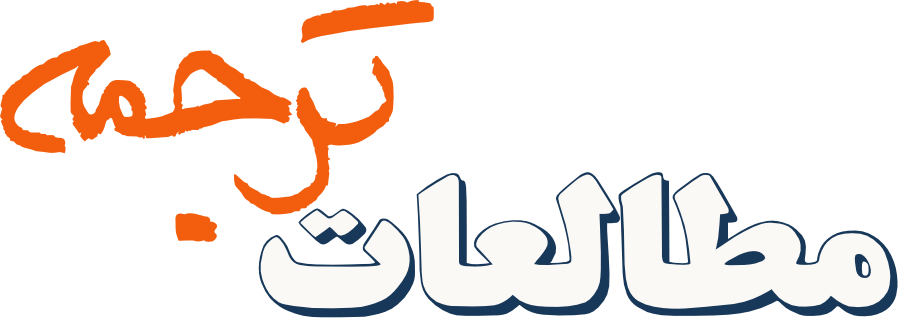چرخشهای مطالعات ترجمه از منظر تحلیل گفتمان انتقادی
نظریۀ نظامهای چندگانه به مثابه گفتمان کانونی در مطالعات ترجمه
چکیده
این مقاله با الهام گرفتن از نظریۀ تغییر پارادایمِ تامس کوهن و استفاده از چارچوب نظری تحلیل گفتمان انتقادیِ فیرکلاف به بررسی فرایند چرخشهای مطالعات ترجمه از منظر تحلیل گفتمان انتقادی میپردازد، و توضیح میدهد که نظریۀ نظامهای چندگانه بهمثابه گفتمان کانونی چگونه ترجمه را از رهگذر فرایندهای گفتمانیِ ظهور و خودینهسازی، رقابت و هژمونی، و بافتگردانی و مستعمرهسازی بازتعریف کرده است. این امر با مفهومسازی چرخشهای مطالعات ترجمه بهمثابه نظمِ گفتمانی در چارچوب مدل تحلیل گفتمانِ انتقادی فیرکلاف صورت میگیرد. این مقاله تلاش دارد نشان بدهد که نظریۀ نظامهای چندگانه پس از آنکه در درون مطالعات ترجمه خودینهسازی شد، گفتمانهای کانونی موجود در این حوزۀ پژوهش را جابجا کرد و با مطرح ساختن یک رشته مسائل مفهومی جدید، دیدگاههای روششناختی و معرفتشناختی حاکم بر ترجمه را تغییر داد، و بدین ترتیب سهم بسزایی در چرخش فرهنگی در این حوزه ایفا نمود. یک چرخش کامل زمانی اتفاق میافتد که سه حوزۀ روششناسی، معرفتشناسی و هستیشناسی در فرایند گفتمانی بازتعریف شوند.
کلمات راهنما:
چرخشهای مطالعات ترجمه, مدل تحلیل گفتمان انتقادی فیرکلاف, گفتمان کانونی, تغییر گفتمان, تغییر پارادایم, نظریۀ نظامهای چندگانهمراجع
Bachmann-Medick, D. (2016). Cultural turns: New orientations in the study of culture. (A. Blauhut, Trans.) Berlin & Boston: Walter de Gruyter GmbH.
Baker, M. (Eds.) (1998). Routledge encyclopedia of translation studies (1st ed.). London & New York: Routledge.
Baker, M., & Saldanha, G. (Eds.) (2020). Routledge encyclopedia of translation studies (3rd ed.). London & New York: Routledge.
Bassnett, S. (2007). Culture and translation. In P. Kuhiwczak and K. Littau (Eds.) A companion to translation studies (pp. 13–23). Clevedon & Buffalo & Toronto: Multilingual Matters Ltd.
Chand, M. (n.d.) New paradigms in qualitative research. Retrieved from https://www.sfu.ca/educ867/htm/paradigm.htm
Chesterman, A. (2017). Reflections on translation theory: Selected papers 1993–2014. Amsterdam & Philadelphia: John Benjamins.
Chouliaraki, L., & Fairclough, N. (1999). Discourse in late modernity: Rethinking critical discourse analysis. Edinburgh: Edinburgh University Press.
Dogan, M. (2001). Paradigms in the social sciences. In International encyclopedia of the social and behavioral sciences (Vol. 16, pp. 11023–11027). USA: Elsevier.
Even-Zohar, I. (1978). The position of translated literature within the literary Polysystem. In J. Holmes, J. Lambert & R. van den Broeck (Eds.), Literature and translation: New perspectives in literary studies (pp. 117–127). Leuven: Acco.
Fairclough, N. (2005). Critical Discourse Analysis in Transdisciplinary Research. In R. Wodak, & P. Chilton (Eds.), A new agenda in (critical) discourse analysis (pp. 53–70). Amsterdam & Philadelphia: John Benjamins.
Fairclough, N. (2006). Discursive transition in central and Eastern Europe. In S. Xu (Ed.), Discourse as cultural struggle. Hong Kong: Hong Kong University Press.
Fairclough, N. (2010). Critical discourse analysis: The critical study of language (2nd ed.). London & New York: Routledge.
Gentzler, E. (2001). Contemporary translation theories (2nd ed.). Clevedon & Buffalo: Multilingual Matters Ltd.
Guerra, C., Capitelli, M., & Longo, S. (2012). The role of paradigms in science: A historical perspective. In L. L'Abate (Ed.), Paradigms in theory construction (pp. 19–30). New York & London: Springer.
Hermans, T. (Ed.). (1985). The manipulation of literature: Studies in literary translation. London & New York: Routledge.
Hermans, T. (1999). Translation in systems: Descriptive and system-oriented approaches explained. London & New York: Routledge.
Ho, G. (2004). Globalization and translation: Towards a paradigm shift in translation studies.(Doctoral dissertation, The University of Auckland, Auckland, New Zealand). Retrieved from Proquest Digital Dissertations.
Jørgensen, M., & Phillips, L. (2002). Discourse analysis as theory and method. London & New Delhi: Sage Publications.
Kuhn, T. S. (1996). The structure of scientific revolutions (3rd ed.). Chicago: The University of Chicago Press.
Lambert, J. (1995). Translation, systems and research: The contribution of Polysystem studies to translation studies. TTR: traduction, terminologie, redaction, 8(1), 105–152.
Lefevere, A. (1985). Why waste our time on rewrites? The trouble with interpretation and the role of rewriting in an alternative paradigm. In T. Hermans (Ed.) The manipulation of literature: Studies in literary translation (pp. 215–243). London & New York: Routledge.
Lefevere, A. (1992). Translation, rewiring, and the manipulation of literary fame. London: Routledge.
Malmkjær, K. (2000). Multidisciplinarity in process research. In S. Tirkkonen-Condit and R. Jääskeläinen (Eds.), Tapping and mapping the process of translation and interpreting (pp. 163–170). Amsterdam & Philadelphia: John Benjamins.
Pym, A. (2014). Exploring translation theories (2nd ed.). London & New York: Routledge.
Sakellariou, P. (2014). The appropriation of the concept of intertextuality for translation-theoretic purposes. Translation Studies, 8(1), 1–13. doi: 10.1080/14781700.2014.943677
Snell-Hornby, M. (1988). Translation studies: An integrated approach. Amsterdam & Philadelphia: John Benjamins.
Snell-Hornby, M. (2006). The turns of translation studies: New paradigms or shifting viewpoints? Amsterdam & Philadelphia: John Benjamins.
Snell-Hornby, M. (2009). What's in a turn? On fits, starts and writings in recent translation studies. Translation Studies, 2(1), 41–51. doi: 10.1080/14781700802496225
Wodak, R. & Weiss, G. (2005). Analyzing European Union discourses: Theories and applications. In R. Wodak and P. Chiltorn (Eds.) New agenda in (critical) discourse analysis (pp. 121–135). Amsterdam & Philadelphia: John Benjamins.
Downloads
چاپشده
ارجاع به مقاله
شماره
نوع مقاله
DOR
مجوز
Copyright Licensee: Iranian Journal of Translation Studies. This article is an open access article distributed under the terms and conditions of the Creative Commons Attribution–NonCommercial 4.0 International (CC BY-NC 4.0 license).





